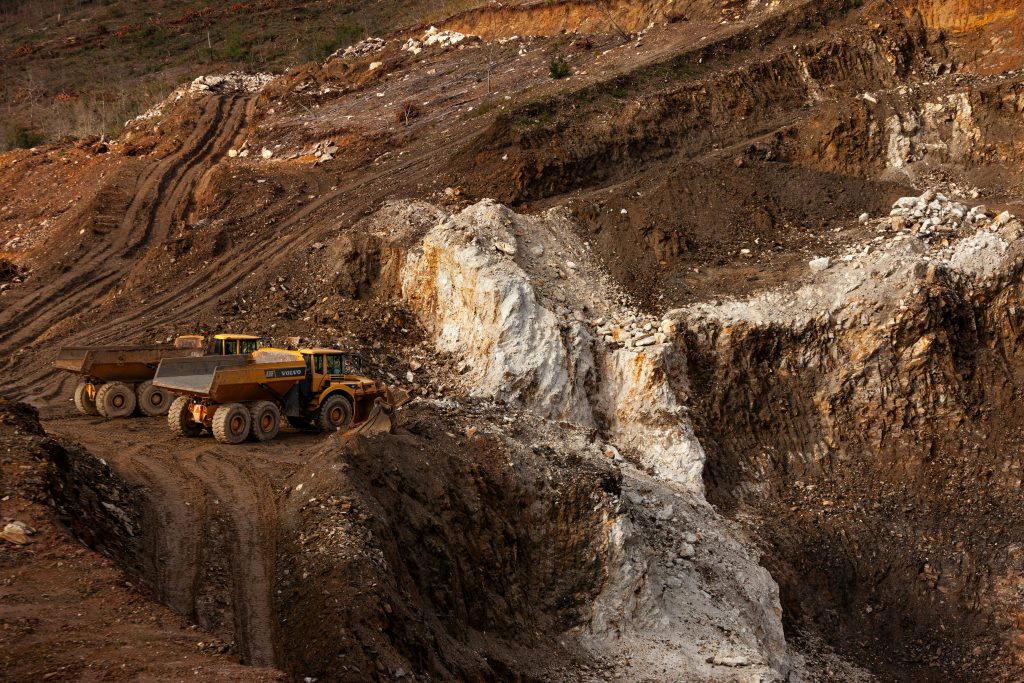Strengthening EU green sovereignty through the Critical Raw Materials Act
Why the EU needs it, what is foreseen, how to make the most of it?

“Without critical raw materials, there will be no Green Deal, no future technology development in Europe”, declared European Commission’s Executive Vice-President Šefčovič in February 2024. The energy transition requires a new green industrial and energy security paradigm, in which critical raw materials (CRM) supply chains will play an important role. As demand for clean techs (solar, wind, batteries, etc.) increases, so does the associated demand for critical raw materials (cobalt, lithium, etc.). Current European supply will fall short of the expected demand in the absence of further policy action. Additionally, the supply is fragile and concentrated, especially in China, creating a high risk of disruption and worrying external supply dependencies for the EU. Lastly, CRM related activities, such as extraction and processing, can be highly sensitive for the environment, and are often conducted in countries with weak social safeguards and insufficient governance frameworks to monitor human rights, social impacts, and environmental degradations.
Geopolitical and geoeconomic considerations together with the need to preserve future innovation capacity bring about a need to strengthen EU sovereignty on CRMs. This would also be an opportunity to enforce high EU environmental and social standards. The potential is substantial. With over 50 investment cases identified on CRM for energy in Europe, the EU could potentially cover 40% of its demand in lithium, cobalt, and rare earth elements by 2030. Yet Europe is lagging behind its main competitors in developing and scaling cutting-edge CRM technologies.
The adoption of the EU Critical Raw Materials Act in 2024 is a strong political signal of the EU’s commitment on CRMs. This policy paper sets out the global CRM supply situation to contextualize why the EU needs to act. It then focuses on the domestic implications of the CRMA, and how it can strengthen EU sovereignty during the green transition. It will present the main features of the CRMA and assess it in light of the challenges of building a CRM ecosystem in Europe.
Key messages and recommendations :
- The CRMA is a landmark legislation that clearly sets CRMs as a key security and resilience priority for the EU. However, it can only be the first step towards a more comprehensive policy mix composed of appropriate financing tools, strengthened governance, and updated products and waste-related regulations and associated policies. Effective implementation of the CRMA would strengthen EU green industrial and energy sovereignty. With increased resilience, it would contribute to better shielding the Single Market from external shocks.
- EU CRM funding tools fall short of the scale and speed needed to truly fulfil EU CRM potential, and achieve greater resilience and sovereignty. The window of opportunity lies in the next few years. With the CRMA, the Commission needs to take action to support crowding in private investment. To that end, in addition to greater involvement of EIB and Invest EU implementing partners in CRMs (providing blended finance, public guarantees including through the creation of a new European Green Guarantee scheme) and the development of criteria for the inclusion of CRM mining and refining activities in the taxonomy, the Commission should propose to establish a European Critical Raw Materials Fund. The Fund could be partly financed by revenues of ETS1. New policy instruments to effectively and swiftly crowd-in private investments in sustainable CRMs should be a priority for the next mandate. They should provide investors with simplicity, scale and speed, and limit distortions on the Single Market.
- Under the CRMA, new obligations are introduced for Member States : setting up a national point of single contat, drawing up national exploration programmes including mineral mapping,… Ambitious and efficient implementation of the CRMA will call for additional governance efforts, improving transparency, access to information, formalizing best practices for public participation, developing technical assistance, capacity building, and knowledge sharing platforms for policy-makers and other stakeholders. A new EU CRM Observatory could support this task and centralize new data, relevant information and ressources..
- Resource management measures supporting efficiency, substitution, circularity and sufficiency should be fully integrated into the CRM policy mix. This will involve updating EU product and waste-related legislation to favour recycling targets, raising awareness among stakeholders about the supply risk associated with CRMs, and the prioritization of low CRM resource use techniques, designs, and products for EU and national funding and financial incentives. According to Transport & Environment, smaller batteries, reduced use of private cars, and innovative chemistry (sodium-ion) could reduce battery metals needs by a third, and up to half in their most ambitious scenario. Smaller batteries are the largest driving factor, representing a quarter of the reduction.
These elements should be fully integrated to a new European energy security strategy. Detailed recommendations are in the conclusion part.





